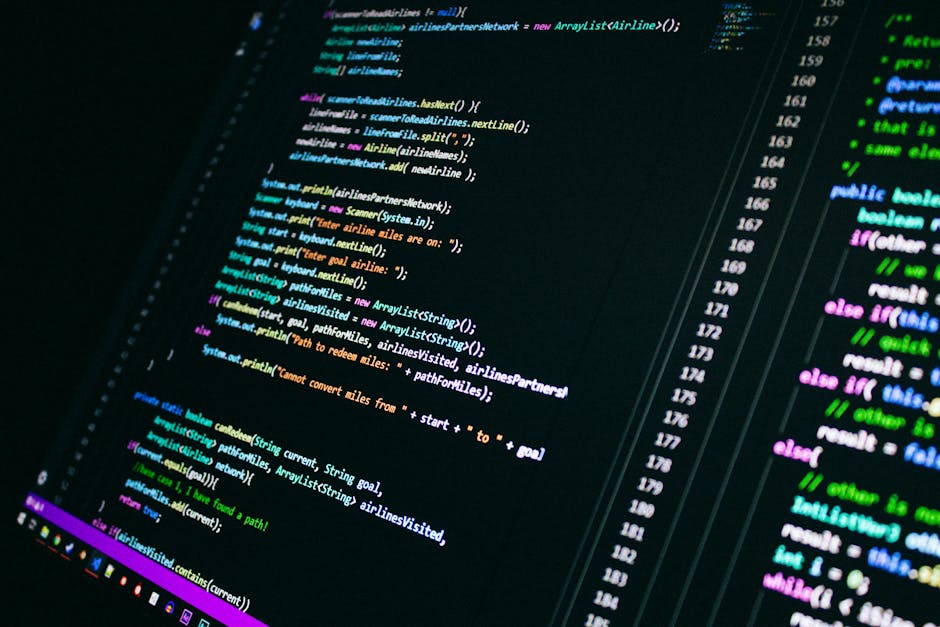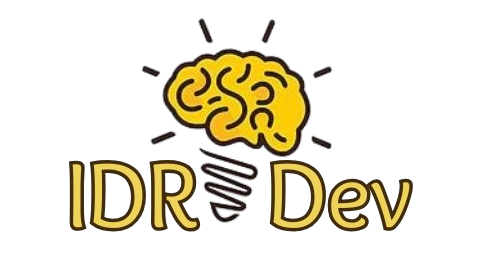Contribute to Python: Top Open Source Projects
Are you a Python enthusiast looking to make a meaningful contribution to the open-source world? Contributing to open-source projects is a fantastic way to enhance your programming skills, collaborate with other developers, and give back to the community. Python, with its extensive libraries and frameworks, offers a plethora of opportunities for developers of all levels to get involved. This article explores some exciting open-source Python projects where you can contribute, providing guidance and strategies to help you get started.
From web development frameworks to data science libraries, the options are diverse and cater to various interests. We will delve into the benefits of contributing, practical steps to begin, and address potential challenges. Ready to dive in and become an active participant in the Python open-source ecosystem? Let’s explore the possibilities!
Background: The Power of Open Source & Python

Open-source software has revolutionized the way software is developed and distributed. The collaborative nature allows developers worldwide to contribute, review, and improve code, leading to more robust and innovative solutions. Python, known for its readability and versatility, has become a staple in various domains, including web development, data science, machine learning, and automation.
The Open Source Movement
The open-source movement promotes transparency, collaboration, and community-driven development. By making source code publicly available, it encourages others to learn, modify, and redistribute the software. This fosters innovation and allows for faster problem-solving, as a wider range of perspectives and expertise are brought to bear.
Python’s Role in Open Source
Python plays a significant role in the open-source landscape. Its clear syntax and extensive libraries make it an attractive language for both beginners and experienced developers. Many critical tools and frameworks used in various industries are built using Python and are open-source, showcasing its importance in the software development ecosystem.
Importance of Contributing to Open Source Python Projects

Contributing to open-source Python projects is not just about giving back; it’s also a valuable investment in your own career and skills. It offers numerous benefits that extend beyond simply writing code.
Skill Enhancement
Working on real-world projects provides practical experience that complements theoretical knowledge. You’ll learn to write cleaner, more efficient code, understand coding standards, and improve your debugging skills. Collaborating with experienced developers exposes you to different coding styles and techniques, accelerating your learning process.
Networking Opportunities
Open-source communities are often vibrant and welcoming, providing opportunities to connect with developers worldwide. Building relationships with other contributors can lead to mentorship opportunities, career advancements, and lifelong friendships. Participating in discussions, code reviews, and community events expands your professional network and exposes you to new ideas and perspectives.
Building a Portfolio
Contributions to open-source projects serve as tangible evidence of your programming skills. A well-maintained GitHub profile showcasing your contributions can impress potential employers and demonstrate your ability to work collaboratively on complex projects. Employers often value candidates with open-source experience, as it indicates a proactive approach to learning and problem-solving.
Making a Difference
Contributing to open-source allows you to positively impact the software used by countless individuals and organizations. Your contributions can help improve the functionality, security, and usability of software that solves real-world problems. Knowing that your work is making a difference can be incredibly rewarding and motivating.
Benefits of Contributing

Beyond the immediate advantages, contributing to open-source Python projects yields long-term benefits that shape your career and personal growth.
Improved Coding Practices
Contributing to established projects forces you to adhere to coding standards and best practices. You learn to write well-documented, testable, and maintainable code, which are essential skills for any software developer. Code reviews from experienced contributors provide valuable feedback, helping you identify areas for improvement and refine your coding style.
Deeper Understanding of Python
Working on diverse projects exposes you to different aspects of Python, including various libraries, frameworks, and design patterns. You gain a deeper understanding of the language’s capabilities and limitations, allowing you to tackle more complex challenges and write more efficient code.
Enhanced Problem-Solving Skills
Open-source projects often involve solving intricate problems and debugging complex issues. Contributing requires you to analyze code, identify bugs, and propose solutions, sharpening your problem-solving skills. You learn to think critically, collaborate effectively, and persevere in the face of challenges.
Increased Visibility in the Tech Community
Active participation in open-source communities increases your visibility and reputation within the tech industry. Your contributions are publicly visible on platforms like GitHub, allowing other developers and potential employers to recognize your skills and expertise. Building a strong online presence can open doors to new opportunities and collaborations.
Steps to Contribute to Python Open Source Projects

Getting started with contributing to open-source Python projects can seem daunting, but with a structured approach, it becomes manageable and rewarding.
1. Find a Project
Start by identifying Python projects that align with your interests and skill level. GitHub is a great resource for discovering open-source projects. Use keywords like “Python,” “open source,” and specific domains (e.g., “data science,” “web development”) to narrow your search. Look for projects with a “good first issue” or “help wanted” label, as these are specifically designed for newcomers.
- Actionable Step: Browse GitHub and search for Python projects that resonate with your interests.
2. Understand the Project
Before diving into coding, take the time to understand the project’s purpose, architecture, and coding standards. Read the project’s documentation, contribution guidelines, and existing issues to get a sense of the project’s goals and priorities. Familiarize yourself with the codebase by exploring the different modules and functions.
- Actionable Step: Read the project’s README file and contribution guidelines thoroughly.
3. Set Up Your Development Environment
Set up a local development environment that mirrors the project’s requirements. This typically involves installing Python, required dependencies, and a code editor. Use virtual environments (e.g., `venv` or `conda`) to isolate your project dependencies and avoid conflicts with other Python projects.
- Actionable Step: Create a virtual environment and install the project’s dependencies using `pip install -r requirements.txt`.
4. Find an Issue to Work On
Look for issues that match your skill level and interests. Start with small, well-defined issues to gain confidence and familiarize yourself with the project’s workflow. Comment on the issue to express your interest in working on it and ask any clarifying questions. Ensure that no one else is already working on the same issue to avoid duplication of effort.
- Actionable Step: Choose a “good first issue” and comment on it to indicate your intention to work on it.
5. Write and Test Your Code
Implement the solution for the chosen issue, following the project’s coding standards and best practices. Write clear, concise code and add comments to explain your logic. Thoroughly test your code to ensure it works as expected and does not introduce any new bugs. Use unit tests and integration tests to verify the correctness of your solution.
- Actionable Step: Write your code, add comments, and test it thoroughly using unit tests.
6. Submit a Pull Request
Once you’ve completed your solution and tested it thoroughly, submit a pull request (PR) to propose your changes. Write a clear and concise PR description explaining the issue you’ve addressed, the changes you’ve made, and any relevant information. Be prepared to address feedback from other contributors and revise your code as needed.
- Actionable Step: Submit a pull request with a clear description of your changes.
7. Engage in Code Review
Code review is an essential part of the open-source contribution process. Be open to feedback from other contributors and address their comments constructively. Revise your code based on the feedback and push the updated changes to your PR. The goal of code review is to improve the quality of the code and ensure it meets the project’s standards.
- Actionable Step: Respond to feedback from reviewers and revise your code accordingly.
8. Celebrate Your Contribution
Once your PR is merged, celebrate your contribution! You’ve successfully contributed to an open-source Python project and made a positive impact on the community. Share your achievement on social media and continue to contribute to other projects or issues.
- Actionable Step: Share your accomplishment and continue contributing to other projects.
Examples of Open Source Python Projects to Contribute To

There are countless open-source Python projects to choose from. Here are a few examples across different domains:
1. Django (Web Framework)
Django is a high-level Python web framework that encourages rapid development and clean, pragmatic design. Contributing to Django involves working on bug fixes, new features, documentation, and more. Django’s community is very active and welcoming to new contributors.
2. Flask (Web Framework)
Flask is a lightweight WSGI web application framework. It is designed to be simple and flexible, allowing developers to build web applications with minimal boilerplate code. Contributions to Flask can include bug fixes, feature enhancements, and documentation improvements.
3. NumPy (Numerical Computing)
NumPy is the fundamental package for numerical computation in Python. It provides support for large, multi-dimensional arrays and matrices, along with a collection of mathematical functions to operate on these arrays. Contributing to NumPy involves working on performance optimizations, new features, and bug fixes.
4. Pandas (Data Analysis)
Pandas is a powerful data analysis and manipulation library for Python. It provides data structures for efficiently storing and manipulating labeled and relational data. Contributing to Pandas involves working on data cleaning, data transformation, and statistical analysis functionalities.
5. Scikit-learn (Machine Learning)
Scikit-learn is a simple and efficient tool for data mining and data analysis. It provides a wide range of machine learning algorithms for classification, regression, clustering, and dimensionality reduction. Contributing to Scikit-learn involves working on algorithm improvements, bug fixes, and documentation enhancements.
Strategies for Effective Contribution
Maximizing your impact and ensuring a positive contribution experience requires strategic thinking and proactive engagement.
Start Small
Don’t feel pressured to tackle complex issues right away. Begin with small, well-defined tasks to gain familiarity with the project’s codebase and workflow. This allows you to build confidence and gradually increase the scope of your contributions.
Communicate Clearly
Effective communication is crucial for successful collaboration. When submitting PRs, provide clear and concise descriptions of the changes you’ve made and the rationale behind them. Respond promptly to feedback from other contributors and engage in constructive discussions.
Follow Coding Standards
Adhering to the project’s coding standards ensures consistency and maintainability of the codebase. Familiarize yourself with the project’s style guide and use tools like linters and code formatters to ensure your code complies with the standards.
Write Comprehensive Tests
Testing is an integral part of software development. Write comprehensive unit tests and integration tests to verify the correctness of your code. Ensure that your tests cover all edge cases and potential failure scenarios.
Be Patient and Persistent
Contributing to open-source can sometimes be challenging, especially when dealing with complex issues or receiving critical feedback. Be patient and persistent, and don’t be discouraged by setbacks. Learn from your mistakes and continue to improve your skills.
Challenges and Solutions
Contributing to open-source projects is not without its challenges. However, with the right approach, these challenges can be overcome.
Challenge: Understanding the Codebase
Solution: Dedicate time to explore the project’s codebase, read the documentation, and ask questions. Use code navigation tools and debuggers to understand the flow of execution. Start with smaller modules and gradually work your way up to more complex components.
Challenge: Dealing with Code Review
Solution: Approach code review as a learning opportunity. Be open to feedback from other contributors and address their comments constructively. Ask clarifying questions if you don’t understand the feedback. Remember that the goal of code review is to improve the quality of the code.
Challenge: Resolving Conflicts
Solution: When merging your changes, you may encounter conflicts with other contributors’ code. Use Git tools to resolve these conflicts manually. Communicate with the other contributors to understand the rationale behind their changes and find a mutually acceptable solution.
Challenge: Time Commitment
Solution: Contributing to open-source requires a time commitment. Set realistic goals and allocate specific time slots for working on projects. Don’t feel pressured to contribute large amounts of code; even small contributions can make a difference.
FAQ: Open Source Python Contributions
Q1: What if I am a beginner? Can I still contribute?
A1: Absolutely! Many projects have tasks specifically labeled as “good first issues” for newcomers.
Q2: How do I find a project that suits my interests?
A2: Browse platforms like GitHub and GitLab, using keywords related to your interests and skill set.
Q3: What if my pull request is rejected?
A3: Don’t be discouraged. Review the feedback, make the necessary adjustments, and resubmit. It’s a learning process.
Q4: Do I need to be an expert to contribute meaningfully?
A4: No, even small contributions like documentation improvements or bug fixes are valuable.
Q5: Is contributing to open source a good use of my time?
A5: Yes! It enhances your skills, builds your portfolio, and contributes to the wider community.
Conclusion: Make Your Mark in Open Source Python
Contributing to open-source Python projects is a rewarding experience that offers numerous benefits for both your career and the community. By following the steps outlined in this article and embracing the strategies for effective contribution, you can make a meaningful impact on the software used by countless individuals and organizations. Don’t hesitate to dive in, explore different projects, and find one that resonates with your interests. Your contributions, no matter how small, can make a big difference.
Ready to start your open-source journey? Head over to GitHub, find a project that sparks your interest, and start contributing today! Your skills and enthusiasm can help shape the future of Python and open-source software. Join the community, collaborate with other developers, and make your mark on the world!

